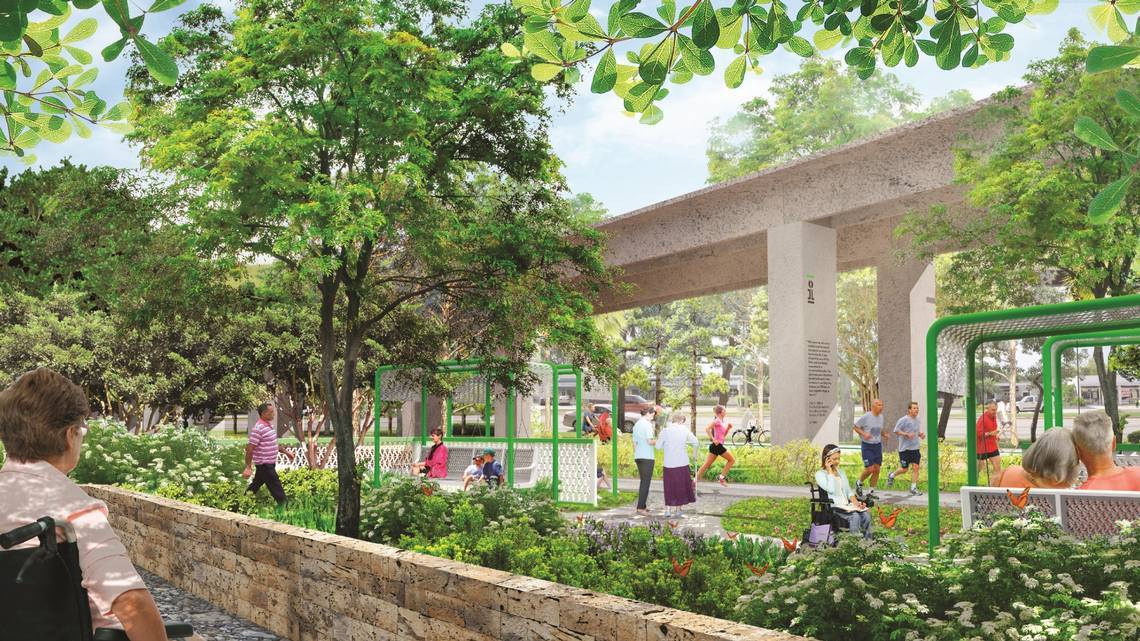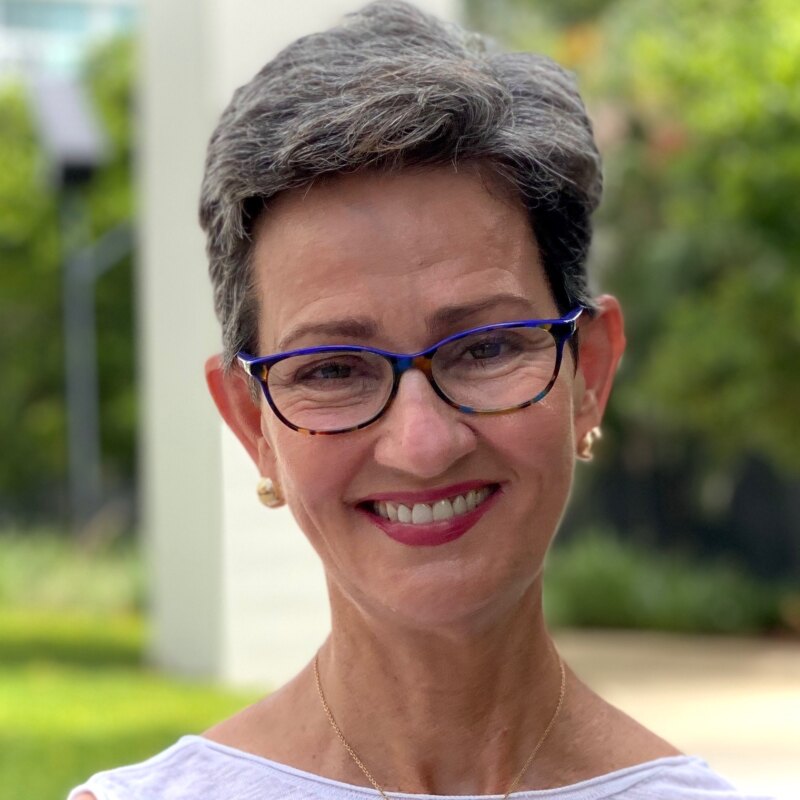Lessons of quarantine can result in a more resilient Miami for everyone | Opinion

Some people have called the era of COVID-19 “the great pause,” but I’m beginning to think that it’s the great accelerator.
As industry slowed, people became more active. With parks closed, kids home from school and fewer cars on the road, people took to the streets, sidewalks and trails as a way to exercise safely outdoors. On the future Underline, a 10-mile linear park, civic project and trail below Metrorail, the Miami-Dade Transportation Planning Organization documented that people were walking and biking on the “MPath” at unprecedented levels.
Many of us are reflecting: Are we at a moment that will change the way we work, live and play for generations to come? And will this change be equitable, offering the same opportunities and value to all residents?
To explore this question, Friends of the Underline launched a virtual program called Miami Voices. Each Wednesday over seven weeks, we examined a different topic about change during COVID-19. We talked about challenging topics such as equity and diversity. We had promising conversations observing how humans adapt to isolation by walking and biking. We shared how our collective yearning for parks and public spaces will shift priorities in future investment. We wondered if the development of parks can spark equitable development that serves everyone regardless of income.
Our guests’ backgrounds were varied: medical professionals, county park and economic development leaders, the founder of the Miami Marathon, local and national foundation leaders, landscape designers and artists. However, they shared a common commitment to bettering humanity and community.
We are living in challenging times. But history has taught us that from adversity comes opportunity and innovation. Telehealth is treating people from their homes, people are taking Pilates classes in their living rooms and The Miami Ballet is performing in a storefront. We talked about the innovative move to close Ocean Drive to support social distancing while also providing outdoor dining space for restaurants. We agreed that technology will forever change the way we meet, but that it will not replace personal interaction and demand for gathering spaces.
Experiencing these magical virtual salons with Miami’s most progressive thinkers was inspiring and lifted me up during our “groundhog days.”
Throughout our dialogue, it was clear, Miamians are resilient and able to adapt. We will make it through this pandemic, and our community can be better if we listen to the lessons of our challenges. I value so many of the comments that came out of our discussions with 21 of Miami’s leading stakeholders over seven weeks:
“People want to reclaim their streets and give them back to pedestrians and bikers.” Frankie Ruiz, founder Lifetime Miami Marathon
“For the first time, a broad swath of Miami felt like the street was for them.” Azhar Chougle, executive director, Transit Alliance
“Having access to a green public space is paramount to the health of communities, but some people in our community are left out.” Arturo Nunez, founder, AIE Creative
“People of color and lower income communities are feeling less connected. How do we reposition our public assets in a more equitable way?” Lilly Weinberg, director of Community Foundations, The John S. and James L. Knight Foundation
“Open spaces attract investment. It’s important to employers, employees and creates a vibrant community.” Michael Finney, president & CEO, Miami-Dade Beacon Council
“Public open spaces connect people with the environment and the natural assets of the community.” Kona Gray, principal, EDSA
“Great parks are in great cities. You heard it here first: The Highline in New York, Millennium Park in Chicago, and now The Underline in Miami.” Miami-Dade County Commissioner Dennis Moss.
Solving issues of health, transportation, equitable access, public spaces, housing, green spaces, resiliency and creativity is a heavy lift. It can take time to mobilize around them. However, during the time of COVID, we seemed to solve problems quicker than ever. Could the human spirit be at its best under duress?
One theme surfaced: We must demand more accessible, public green spaces. Residents and elected officials must come together to prioritize not just the construction, but also the long-term maintenance, of parks and trails that improve our quality of life and public health. In terms of transportation, our future is not just one car, one person. We must plan our streets to be flexible public spaces designed for all modes of transportation for all people of all ages.
Miami Voices provided insight into the importance of not only advocating for these solutions, but also creating a forum to allow for this much-needed discussion to take place. To that end, The Underline encourages new and current elected officials to invest in a greener, healthier more equitable and resilient Miami-Dade County.
Click to read more on The Miami Herald here.
